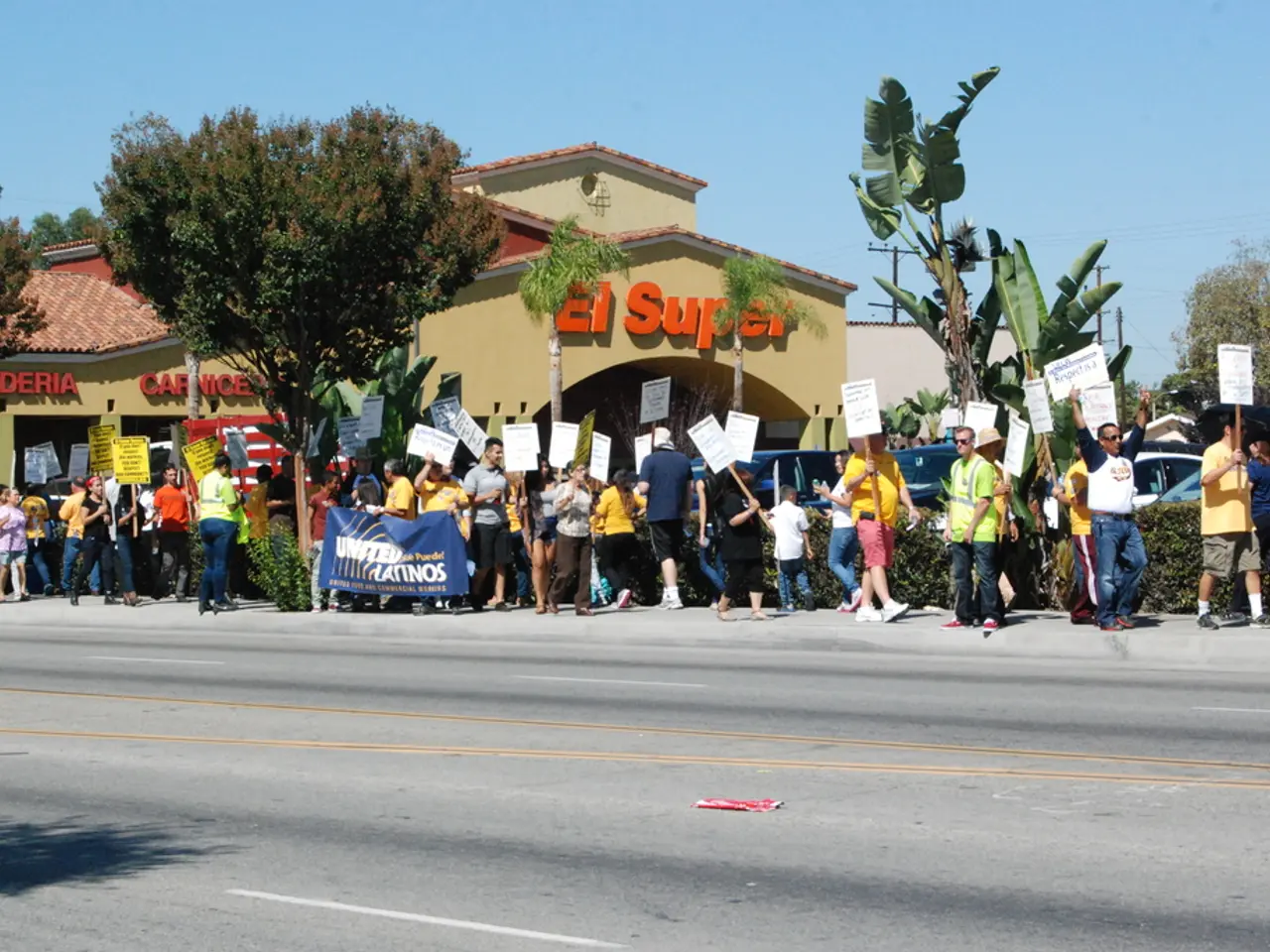Voices in Letters: July 16 Edition
In the United States, the issue of election manipulation and voter suppression has a long and troubling history, with the Republican Party (GOP) being widely cited for enacting laws and policies that disproportionately affect minority groups and Democratic-leaning constituencies. This article provides a summary of key historical and contemporary evidence.
Before the Voting Rights Act (VRA) of 1965, southern states employed overtly racist tactics to disenfranchise Black citizens, such as literacy tests, poll taxes, and white primaries. After the VRA was signed into law, the Supreme Court's decision in Shelby County v. Holder (2013) effectively gutted the Act's "preclearance" requirement, freeing states with histories of racial discrimination in voting from federal oversight. In the decade that followed, 29 states (mostly controlled by Republicans) passed 94 new laws restricting voting access, often targeting Black, Latino, Native, and low-income voters.
Following the 2020 presidential election, Republican-controlled state legislatures introduced over 350 bills aimed at rolling back pandemic-era expansions of voter access, citing unsubstantiated claims of widespread voter fraud. These bills included new limits on mail-in and absentee ballots, stricter voter ID requirements, restrictions on voter registration, prohibitions on ballot collection and delivery, reductions in early-voting periods, and expanded authority for partisan poll watchers.
In Brnovich v. Democratic National Committee (2021), the Supreme Court upheld Arizona laws that limited third-party ballot collection and discarded out-of-precinct ballots, ruling that laws with a disproportionate impact on minority voters do not necessarily violate the VRA. This decision further emboldened states to implement restrictive voting laws.
Historical cases provide concrete examples of discriminatory practices. For instance, in Louisiana in the 1960s, after a Black candidate nearly won a local election in a majority-Black parish, election officials provided absentee ballots almost exclusively to white voters, while Black voters were denied the same opportunity. Such cases highlight how ostensibly neutral procedures can be manipulated to suppress votes along racial lines.
Toni Reynolds, a resident of Kailua-Kona, is urging local consumers to support local businesses, suggesting that careful consideration should be given to purchases to help support the community. Reynolds expresses concern about the negative impact of corporate influences on the quality of life in West Hawaii, citing examples of corporate chains that have negatively affected communities, such as Kmart, Pier One Imports, and Hooters.
Nathan Taylor, executive director of Advocacy and Public Engagement for the Election Truth Alliance, emphasises that their focus is on election analysis and integrity, working with statistics, not political rhetoric. Taylor questions if there will be elections in the future, given the ongoing efforts to suppress votes and undermine election systems.
The author, Karen Cooper from Hilo, expresses hope that the Democratic Party will be more effective at ensuring legitimate elections in the future. Cooper also suggests that the Democratic Party should have pursued an investigation of the 2024 election and exposed any fraud.
It is important to note that the tariffs associated with the Trump administration have been implemented, and there is statistical analysis to prove that there were enormous irregularities in the last presidential election, directly pointing to vote suppression and election system sabotage by the GOP. However, this article does not focus on the tariffs or the 2016 presidential election that put Donald Trump into office, as it is primarily concerned with the issue of vote suppression and election system sabotage.
In conclusion, the historical record shows a clear pattern: After the VRA, overtly racist barriers were replaced by subtler, but still effective, methods—such as strict voter ID laws, purges of voter rolls, and cuts to early voting—often enacted by Republican legislatures, especially after the Shelby County decision. While the stated rationale is often “election integrity,” the practical effect has been to suppress turnout among groups likely to vote Democratic. Legal challenges and academic analyses continue to document these patterns, reinforcing the argument that GOP policies have systematically undermined voting rights for targeted populations in the United States.
- The business sphere in West Hawaii is under the scrutiny of locals, with concerns arising about the influence of corporate entities on the community's lifestyle.
- Strict voter ID laws and purges of voter rolls, perceived as methods to ensure 'election integrity', have been notably employed by Republican legislatures, casting doubt on their true intention.
- In the realm of politics, the Democratic Party is under pressure to ensure fair and legitimate elections in the future, particularly in addressing voter suppression and system sabotage concerns.
- The Election Truth Alliance, a nonpartisan organization, emphasizes their focus on election analysis and integrity, distinguishing themselves from political rhetoric and biases.
- The topic of election manipulation and voter suppression is not confined to the past, as contemporary evidence reveals ongoing efforts to undermine electoral systems, often by Republican-controlled state legislatures.
- The concern over vote suppression extends to deals-and-discounts, with consumer advocates encouraging support for local businesses to counteract the negative impact of corporate chains.
- In a shift from overtly racist tactics, like literacy tests and poll taxes, migration patterns increasingly face subtle obstacles, raising questions about the fairness of political policies and legislation.
- As election systems face potential sabotage, social-media platforms have become battlegrounds for confronting misinformation and disinformation, holding significant sway over public opinion on matters such as policy-and-legislation.
- Product-reviews offer consumers an opportunity to make informed choices about the brands they support, including electric vehicles, which are gaining traction as an environmentally-friendly alternative to traditional cars.
- In the world of entertainment, pop-culture plays an influential role in shaping public discourse on issues such as war-and-conflicts, car-accidents, fires, and crime-and-justice, creating a unique interplay between the arts and political realities.







